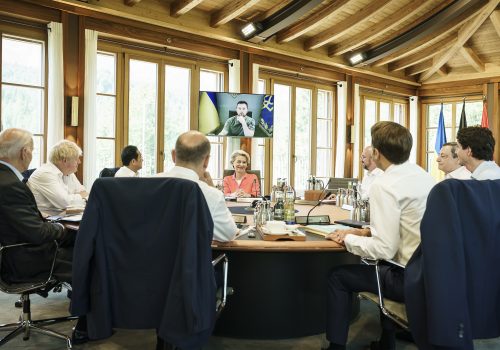Will economic statecraft threaten western currency dominance? Sanctions, geopolitics, and the global monetary order
The return of great power rivalry is stoking renewed fears of weakening Western currency dominance. Financial sanctions are becoming the preferred economic tool for accomplishing geopolitical goals. These instruments are especially popular with the United States and Europe. In response, rival great powers, notably China and Russia, are diversifying away from Western currencies and developing counterstrategies to maintain economic and foreign policy autonomy.
As other countries are hit by increasingly punishing Western sanctions, the incentive to join Russia and China’s alternative international monetary order increases. New analysis, published in this report, shows early signs that some countries may be trying to diversify away from the dollar. A growing circle of countries attempting to evade the Western-centric financial and currency order may over time erode the dollar and the euro’s sizeable lead, though will likely fall well short of ending their global dominance.
This report analyzes these trends and quantifies the extent of reserve diversification following Russia’s 2022 war on Ukraine. It also assesses the polarity of the international currency order since the onset of the euro in 2002. Reserve diversification out of the dollar, and into the euro, has been modest, though Chinese renminbi reserves grew after Russia’s February offensive in Ukraine. Dollar unipolarity declined acutely in 2017 as the number of countries sanctioned by the United States increased and the US President Donald J. Trump threatened to revoke alliance commitments. Using economic statecraft while retaining global economic influence will require the United States to keep its economic house in order and allies close, if the current unipolar currency order is to survive.


